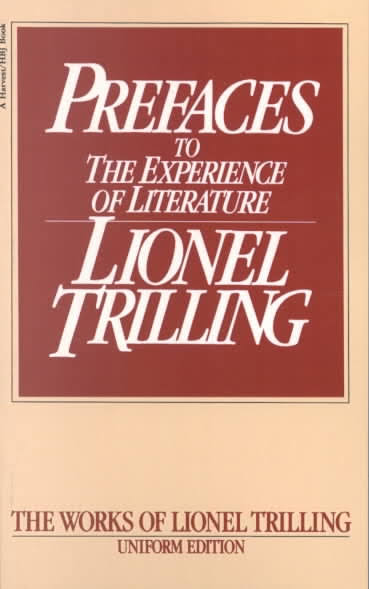
Of the many great literary critics of the 20th century now dead and unfashionable, I feel the loss of Lionel Trilling most acutely. A consolation: he passed away in 1975, before the universities of the Western world turned against their own founding principles, and so he did not live to see his beloved literary canon condemned, or the many colloquiums and survey courses on “great works” discarded like unripe fruit. At Columbia University, where Trilling taught for over three decades, generations of students had the great good fortune of taking his Colloquium on Important Books, co-taught with historian Jacques Barzun, and the list of their influential graduates (from Jack Kerouac, Allen Ginsberg and Cynthia Ozick to the recently unpersoned Leon Wieseltier) has at least ensured Trilling’s ongoing influence outside of the academy. What is it about Trilling’s approach to literature that has rendered him anachronistic? Contrary to the fashion of the times, which applies to literature the warped lens of various “theories,” the better to “interrogate” the hapless novel or poem, Trilling approached every work of literature as if it had something important to teach not only him but all of mankind.
A side effect of this approach: if you consider literature to be a source of wisdom, you are far less likely to specialize, to restrict your reading to a particular genre or era, far more likely to greedily absorb all that you can, from every writer and form and time period. Trilling’s Prefaces To The Experience Of Literature collects the many introductions he wrote for an original anthology, The Experiences Of Literature, that he personally used to teach English and Comparative Literature. Its 50 works, including drama, poetry and short stories, span more than a millennium, from Sophocles’ Oedipus Rex to T.S. Eliot’s The Waste Land, and yet Trilling manages to speak to each of them with a remarkable degree of insight and fluency. He supplies biographical material and historical context, where relevant, but he also provides close readings of key passages, or expands upon the wider significance of a given theme. Here he is, for example, discussing Dostoevsky’s famous story of “The Grand Inquisitor,” and specifically why we recoil at the Inquisitor’s offer of an earthly paradise:
The Grand Inquisitor speaks of man’s surrendering his freedom in exchange for happiness, and he means exactly the freedom to know good and evil and to choose between them, even though with pain. The whole intention of of his Earthly Paradise is to relieve man of the pain that freedom entails. We reject what he has to offer because its acceptance means the loss of the dignity of freedom.
But Trilling, good liberal that he is, cannot allow the starkness of Dostoevsky’s dichotomy to remain unchallenged.
Dostoevsky, we can scarcely doubt, wishes us to go beyond this rejection; he would have us believe that with each rational step a polity takes toward material well-being its people are carried that much nearer to passivity, dependence, and spiritual extinction. He is at one with his Devil-Inquisitor in offering us only extreme courses, either a life of spiritual freedom in the “wilderness” or a life of slavery in society. The spell of his art is strong indeed, and while we are under its influence it needs an effort of mind to reflect that humanity is not in reality confronted with alternatives so unmodified and, we may say, so simple in their absoluteness.
Is this fair to Dostoevsky? Is the Russian novelist really beguiling us into accepting so “simple” a dichotomy? Absolute material well-being may indeed require absolute submission on the part of humanity, who are too hopelessly contradictory to ever satisfy themselves with a fixed paradise, but it might also be true that every step we take towards material comfort and stability comes with a spiritual cost – such, for example, is the argument of Freud’s Civilization And Its Discontents. And when Trilling arrives at the moderns (at Mathew Arnold, T.S. Eliot, Hemingway and Kafka), his fidelity to the writing overtakes his optimism. Arnold’s “Dover Beach,” he tells us, is about the “alienation, isolation, and excess of consciousness leading to doubt which are, as so much of later literature testifies, the lot of modern man.” Indeed, Trilling goes even further: one way of understanding literary modernism, he tells us, is that its practitioners don’t much like the modern world. When he arrives at Eliot’s “The Waste Land” – the single poem to which he devotes the most pages – Arnold’s alienation, isolation and excess of consciousness get a much fuller treatment, as the single thread connecting that great poem’s many voices is their common failure to find love. Eliot gives us sex without reproduction, death without rebirth.
I cannot adequately summarize this book, for it is, by design, not a coherent whole, but an assemblage of many parts. Suffice it to say, however, that a journey through more than a thousand years of literature with Lionel Trilling amply rewards the traveler.